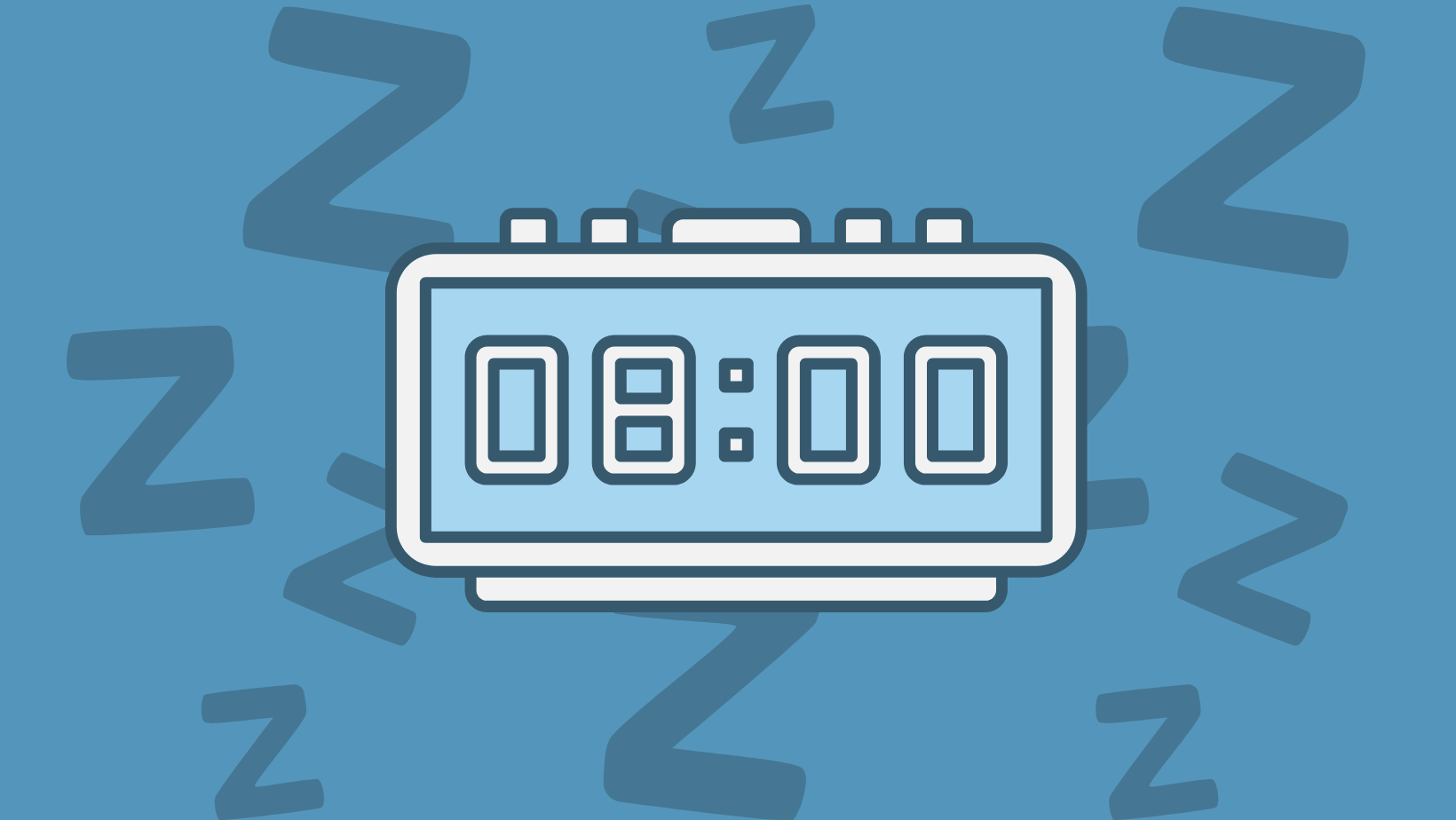The athletic department hosted a meeting highlighting the importance of sleep for athletes. Graphic by Annie Faulkner
TESSA FACKRELL | STAFF REPORTER | tfackrell@butler.edu
In a study done by the NCAA, in-season student athletes report, on average, getting just over six hours of sleep per night even though at least eight hours are recommended. In the same study, 61% of athletes reported daytime fatigue at least three or more days per week, which affects both athletic and academic performance.
To help combat these issues, Ralph Reiff, senior associate athletic director for student athlete mental health, performance, and wellbeing, hosted a “Sleep Strategies” meeting with Butler athletes to try and help them perform better.
The hour-long presentation, which took place Jan. 30, shared research about sleep among collegiate athletes, primarily how sleep is needed to reduce injury and illness. Also discussed were some strategies to improve the quality and duration of sleep. These included putting devices away an hour before going to sleep, wearing blue light blocking glasses and having a bedtime routine.
This information was all presented by Dr. Amy Bender, a sleep specialist and the director of clinical sleep science at Cerebra Medical. More than 330 student athletes attended the presentation.
Bender joined the students via Zoom to share her research around sleep and athletes.
“The information has kind of been a culmination of probably years of me doing these presentations for athletes,” Bender said. “So this was kind of what I felt would be important for collegiate athletes to understand, and what actual strategies they could implement themselves, and also, the importance of why those strategies would be good for them.”
Athletes took a survey following the presentation, in which 93% of attendees reported learning something new.
After the meeting with students, there was a presentation for coaches the following night.
“I think another important message is for coaches to emphasize sleep throughout the season,” Bender said. “So it’s not just a one-time and you’re done, it’s more like checking in with your athletes, how are they sleeping, is an important takeaway for the coaches too to not make it just this presentation and then that’s the end. It’s gotta be interacting with your athletes about the importance of sleep.”
Lacrosse player KK Callaghan, a senior mechanical engineering and math double major, appreciated the effort to host the event.
“I really enjoyed the sleep presentation,” Callaghan said in an email to The Butler Collegian. “I thought it was well organized and also well advertised to all student athletes. I know sleep is a crucial part of our athletic performance, so I thoroughly enjoyed learning more about it.”
During Bender’s presentation, however, some athletes used the Q&A function to post distasteful comments and jokes, which the presenter was able to read during and after the event.
Reiff said that he had to ask questions to the presenter, but the Q&A was flooded with off-topic comments.
“I was disappointed, but not shocked,” Reiff said. “Disappointed, not shocked. But coaches addressed it. I know that certain coaches have really addressed it with their teams.”
Despite the errant comments left in the Q&A chat, Reiff believes that the students learned from the presentation, and hopes to continue hosting events where student athletes can improve their performance.
“I would say I’m very encouraged by the response, both in attendance and post event questions,” Reiff said. “I have been very encouraged, so we will continue this programming.”
Reiff said that future topics of interest for athletes include mental health and hydration. With athletes self-reporting which areas are important to them, Reiff is taking all suggestions into consideration when preparing for future presentations.



